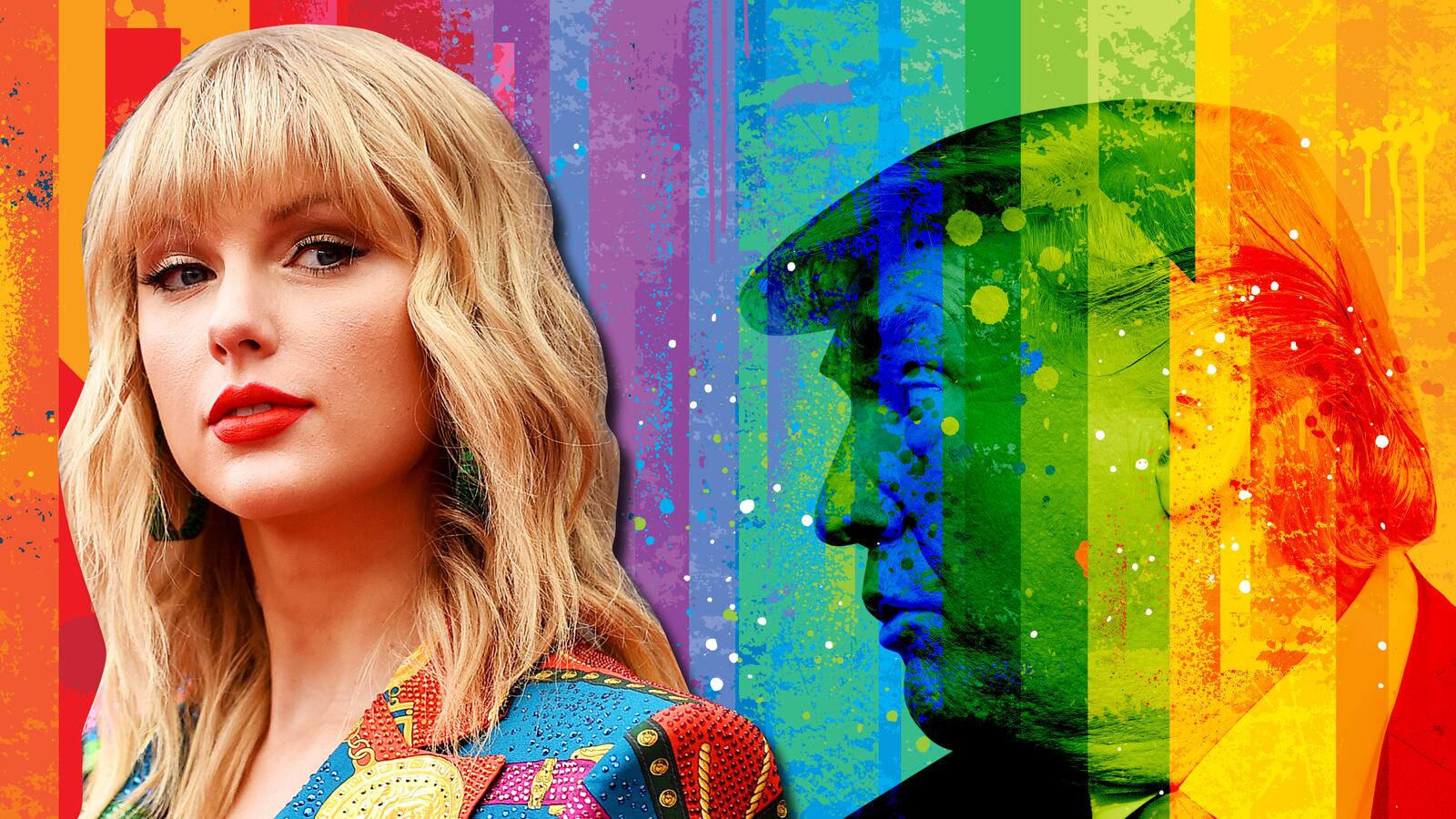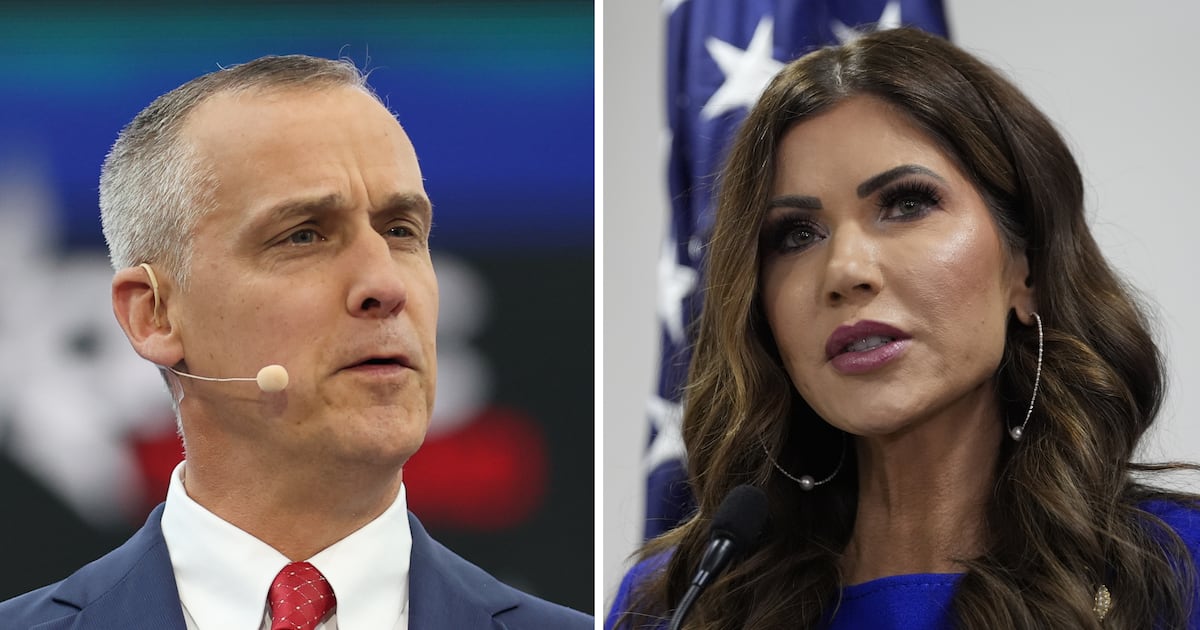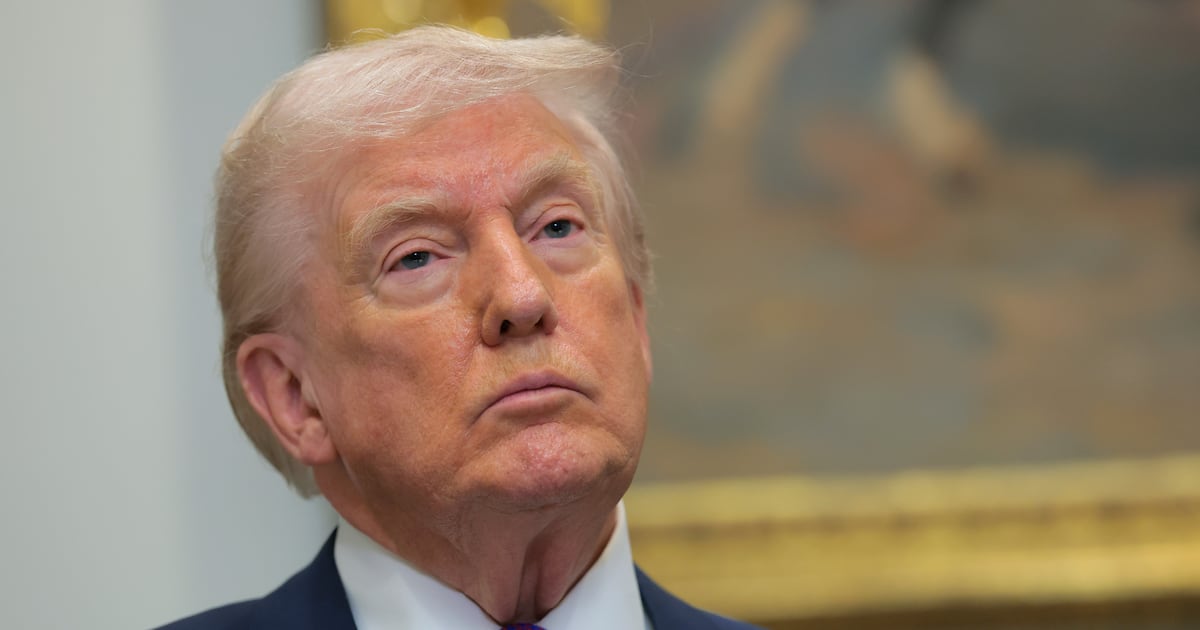More than any politician—or any other pop star—Taylor Swift has struck fear in the hearts of the enemies of LGBTQ equality.
Democratic candidates running for president have strongly denounced the White House’s opposition to the Equality Act, for example, the broad anti-discrimination bill that would protect LGBTQ people federally.
It was passed by the House earlier this year but Senate Majority Leader Mitch McConnell won’t allow a vote in the Senate. Beyond the White House’s initial opposition statement to the bill back in May, however, Democrats’ demands have been largely ignored.
But when Swift called out the Trump administration at the MTV Video Music Awards last Monday night, accepting the award for Video of the Year for her queer anthem, “You Need To Calm Down,” and asking the White House to respond to a petition she’d promoted supporting the Equality Act, the response came less than 24 hours later.
The White House’s gay deputy press secretary, Judd Deere, repeated the Trump administration line that it “supports equal treatment for all” but doesn’t support this bill because of “poison pills”—a bogus argument meant to cover up President Donald Trump’s bowing to religious extremists and their desire to discriminate based on their religious beliefs.
On Fox News, Kellyanne Conway tried to make light of Swift's clarion call by literally singing the lyrics to Swift’s song, while Fox And Friends—which has acted as an arm of the administration—brought on a guest who mocked Swift.
Even anti-LGBTQ evangelical leader and loyal Trump supporter Franklin Graham clearly felt he had to go into high dudgeon, accusing Swift of promoting,“the most crushing threat to religious liberty in our nation’s history.”
The immediate reactions were for good reason. The 29-year-old pop phenomenon who has sold more than 50 million albums has a massive fan base among a young demographic nationally—people who follow her lead. When Swift broke her silence on partisan politics and endorsed Democrats in 2018 in a post to her more than 112 million Instagram followers, a surge in voter registrations followed, enough to scare any seasoned GOP strategist.
Madonna, Lady Gaga and other recording artists and Hollywood figures have of course championed LGBTQ civil rights too—long before Swift—and have certainly influenced millions of Americans on the issue.
But unlike most of them, Swift didn’t rise up from an urban or counterculture music scene, which can be too easily marginalized by GOP politicians and voters. Rather she emerged out of red state America, within a comparatively traditional conservative music world.
Born in Pennsylvania, Swift moved to Nashville with her family as a teen. By the time Swift was 20 years old she became a country music sensation. Soon enough she had crossover hits that brought international stardom, widened her audience astronomically and helped her gain enormous influence.
When Swift spoke out against Republican candidates in 2018, Trump’s response revealed Swift’s superpowers. Just about every well-known woman who crosses Trump, after all, is vilified by him in misogynistic tirades.
But Trump’s only response to Swift was that he would “like Taylor’s music about 25% less now.”
For Trump, that was about as respectful—and careful—as you get. Sen. Corey Booker, Senator Elizabeth Warren and other Democratic presidential candidates signed Swift’s petition to the White House on the Equality Act earlier this summer, acknowledging her power and might, following her lead rather than the other way around.
Some inside and outside the LGBTQ community have questioned the sincerity of Swift's advocacy, raising concerns that she’s profiting from it or, in the case of the “Calm Down” video, which is filled with queer icons and rainbow flags, engaging in appropriation. That has often been claimed about Madonna, Gaga and others too.
Whatever the case, Swift is also giving major heartburn to the enemies of equality. It’s true that embracing celebrities as leaders on causes can be a double-edged sword—we have only to look to Jussie Smollett on that, after all—and activists should be wary and know when to create distance. But when someone is giving you an enormous platform, you don’t turn it down.
And in this case that platform extends right into the GOP and the voters Trump covets. When the White House must continually repeat that it supports “equal treatment for all” but that the Equality Act has “poison pills” that “undermine parental and conscience rights,” it draws the ridiculousness of the argument—and its political calculus—out into the open.
The Trump campaign’s goal is to appease suburban straight voters who are repelled by blatant bigotry—and that includes many that are part of the huge Swift fan base—while not deviating from evangelical leaders demands. As Swift herself said in an open letter back in June, however, you can’t claim to support equality while supporting discrimination.
She articulates that point repeatedly and loudly—enough to make them jumpy in the White House and on the religious right. That’s why, for them, perhaps more than anyone else on the issue, Swift represents a clear and present danger.







